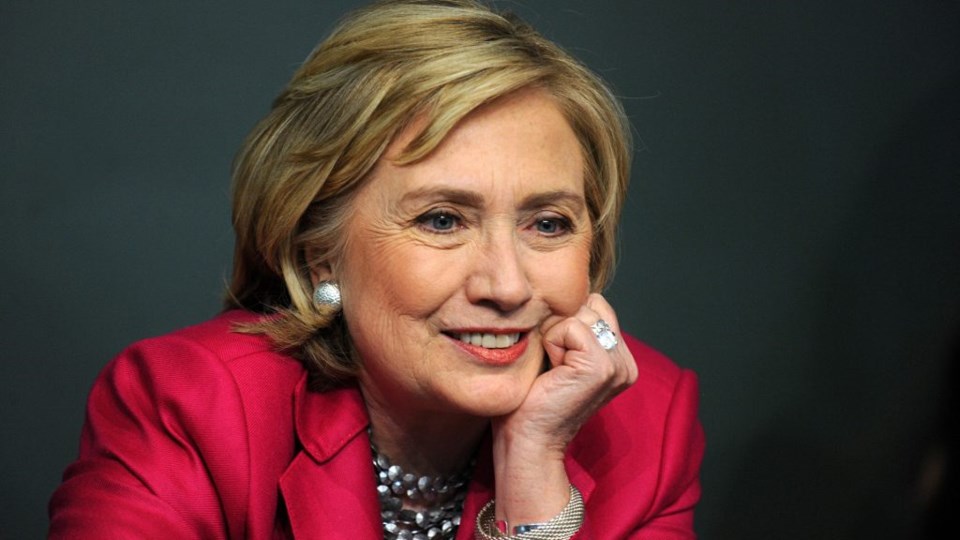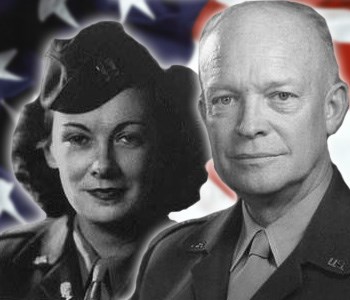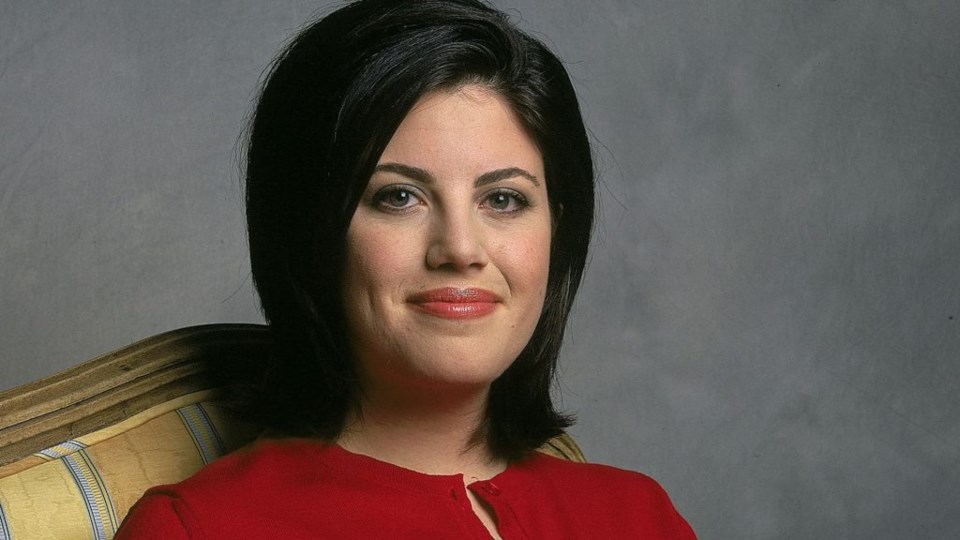
By Michael Milton
I am so tired of hearing people say "I don't trust Hillary," or, even more idiotically, "I don't like Hillary." The latter, especially, has become a sort of hip memetic for conservatives and liberals alike. Who cares whether you like her or not? She's like kale. She has everything you need. You may not think you LIKE her, but she's good for you.
Like has, until recently, is a word that has NEVER figured into American politics. Historically, candidates for our country's highest office have never been required to be liked by the electorate. The President doesn't need to be your best pal, folks. If you want good skin tone and a convincing smile, vote for Jennifer Aniston.
Did voters like Herbert Hoover? Harry Truman? Or even James Madison? OK, maybe Dolly liked him.
[perfectpullquote align="left" cite="" link="" color="" class="" size=""]Thank God Ghandi didn't need to appeal to a television audience in order to move forward his world vision![/perfectpullquote]
Did the American electorate like Dwight D. Eisenhower? His term in office still represents for many Republicans dreamy years back in the American mists, an era some current candidates would like us to reverse our Dodge Rams into pronto in an effort to " make America great!" again.

Eisenhower was admired. He was respected. He was appreciated. Liked? Who knew him enough to like him? He was a general who helped us get through World War 2, and for that we were in awe; in awe enough to elect him president of the United States—twice. How Ike would fend politically and on likability charts in today's technologically invasive atmosphere is anyone's guess.
And after Ike, came television.
The importance of being liked or disliked for politicians has risen in equal measure to the evolving omnipresence of television and her ADHD offspring--computers, Twitter, Facebook, Instagram, Google, selfies and the rest. In short, technology created the notion that our restless and vaguely bored populace needs to be entertained, much like the throngs of ancient Romans who filled the Coliseum daily to observe the gladiators they liked split open the Christians they disliked.
People still talk about the sweat on Nixon's upper lip back in 1960's infamous televised debates between Nixon and Kennedy, one of television's first inroads into selling a candidate's likability. Yes, television DID make Nixon look a trifle uneasy.

But did anyone then (or even now) suspect that the reason Kennedy didn't appear nervous was, at least in part, due to the fact that he had been shot up with Demerol before the debates began? Kennedy suffered enormous pain both from Addison disease and a back injury sustained during the war; I know from my own personal experiences with Demerol how extraordinarily calming it can be, no matter the stressor!
Television created a new set of rules of composure for candidates; it's not enough that they understood the workings of the jobs they aspired to. No. They also had to appeal to us and entertain us, at least as much as an EVERYBODY LOVES RAYMOND episode might. And what exactly is it that technology encourages us to like or dislike? Hair style? Accent? Posture? Sense of humor? Attire? Pore-less skin? Crow's feet? Hairpieces? Teeth? Smiles? Thank God Ghandi didn't need to appeal to a television audience in order to move forward his world vision!
"Who is that humorless, dark, skinny guy with the bad teeth, thick glasses and the diaper? I don't like him!"

As much as I would love to disregard the whole "I don't LIKE Hillary" meme, I am going to address it anyway in the simplest way I can;
SHE IS A WOMAN RUNNING FOR AN OFFICE THAT HAS NEVER BEEN HELD BY A WOMAN.
Let me say that one more time:
HILLARY CLINTON IS A WOMAN RUNNING FOR AN OFFICE THAT HAS NEVER BEEN BEFORE HELD BY A WOMAN.
Is it possible the folks who insist that they don't like her could simply be momentarily befuddled because she isn't a familiar power archetype? I believe no matter who the female politician was to first run for president, the issue of trust and likability would be similarly attached, based solely on the issue of gender.
Without wandering too far afield into Oedipal or Madonna-whore complexes, I opine that many men (possibly women, too) overly emphasize female hormonal issues: "What happens when she is on her cycle??" Or, if older, "What will she be like during menopause?"
Well, we all KNOW that women are C-R-A-Z-Y then!! Don't want either of THOSE lady energies near the nuclear button!!!
By the way, men have cycles, too, a biological fact often shrugged off by you guessed it .men, much the way some react to any mention of global warming. My observation is that men (myself included) can be a whole lot crazier and more self-pitying during our metaphoric "time of the month" than women, for the simple reason that most men don't accept their monthly vulnerability.

Guys, denial doesn't make it untrue, though that is a stratagem that has for many millennia helped define patriarchal societies. One need look only at the billions of dollars men have thrown at prolonging their sexual "time in the sun," by way of Viagra and Cialis, a blatant refusal to accept time's inroads on male libido. When I look at Donald Trump, I see an ageing roue being dragged kicking and screaming into his twilight years, a malfunctioning appendage guiding him blindly towards one big last bang.
I think that women accept—trained by Nature--their "monthlies", and are, because of it, taught lessons of patience and forbearing, both good traits for a big job, say, in the White House. Women know from experience the truth of the words " this too shall pass."
We in American aren't sure what a matriarchal society looks like. We don't have an image for it. Sure, we can look to Germany's Angela Merkel and England's Theresa May or even back to Margaret Thatcher a few decades past. (Did anyone actually like Margaret Thatcher?) Certainly, she didn't have to wrestle with the behemoth technology has become in the 21st century.
America is a far more vast and complex empire than any other a woman has been held accountable for. We haven't had the opportunity to relate to women in positions of such massive power; sure, some Senators and Representatives, a few governors, four Supreme Court justices. I discount Sarah Palin for all the reasons one might discount a toad attempting to operate a back hoe.
But this is the presidency of the United States of America, y'all!
What Secretary Clinton is currently being forced by us to do—while running for the office of the most powerful person in the world—is figure out how to be likeable. We are asking her to provide us with an image for a woman occupying a position that we only know of as a man's job.
How feminine will we allow her to be? How masculine? How opinionated? When does "outspoken" become "bitchy? When is "forceful" considered "crazy?" We, the voters, don't even know the answer to these questions. After all, laugh tracks usually supply us with the answers.
So, yes, Clinton might seem to some a bit stand-offish. She knows her business, we can all agree to that. But HOW to present herself to us? Who does she look to for visual and performance cues in a universe where a conception for female performance doesn't even exist yet in most of our imaginations.
Untrustworthy? Crooked? Disliked? Or is she simply cautious out of gender-ized necessity?

Look, I don't think it's my business, or any of yours, frankly, what Hillary Clinton went through when the scandal broke. We all suspect that little Monica wasn't the first and perhaps not the last. And I think we would be foolish to think that Mrs. Clinton wasn't aware of her husband's activities way before we were, as well.
How many of us know our partners are cheating on us? How many of us are still with those same cheaters? How many of us made deals with ourselves or with our partners as to how our futures' after infidelities would play out? Should Mrs. Clinton talk about how she handled the hurt and shame created by that very public scandal? Would that make her more knowable? More likable? Most trustworthy?
Maybe.
She doesn't have to explain it to me and I'm sure that's a big burden off her shoulders. An intrusive constituency, nonetheless, chews on the bit: "How did you live through it?" "How did you answer your daughter's questions about it?" "How did you face your husband day after day after day?" "How did you take his hand the first time out in public?"
What is clear is that--however she did it--she came out on the other side; she gave of herself over and over again to the public, to her constituents, to her job; she rose above whatever bitterness and embarrassment she experienced, raised her daughter, became a grandmother, ran for office, became Secretary of State and somehow, somehow managed to maintain what appears to be a very good relationship with her husband.

So, yes. Perhaps you don't like her because you can't possibly understand her. She does NOT have the same characteristics or qualities as you have. And in my observations of people lately, that difference is probably a very good thing for America.
No. We don't need to like her. Aspire instead—speaking to a different definition of the word-- and seek, perhaps, to be more like her.
There is no compass charting true North for any woman running for president. In fact, Americans have historically only very recently begun to accept any matriarchal presence politically. Secretary Clinton's coming to power will take us yet another step in that direction and, I, for one, welcome it.
The patriarchs, after all, haven't done such a great job.



